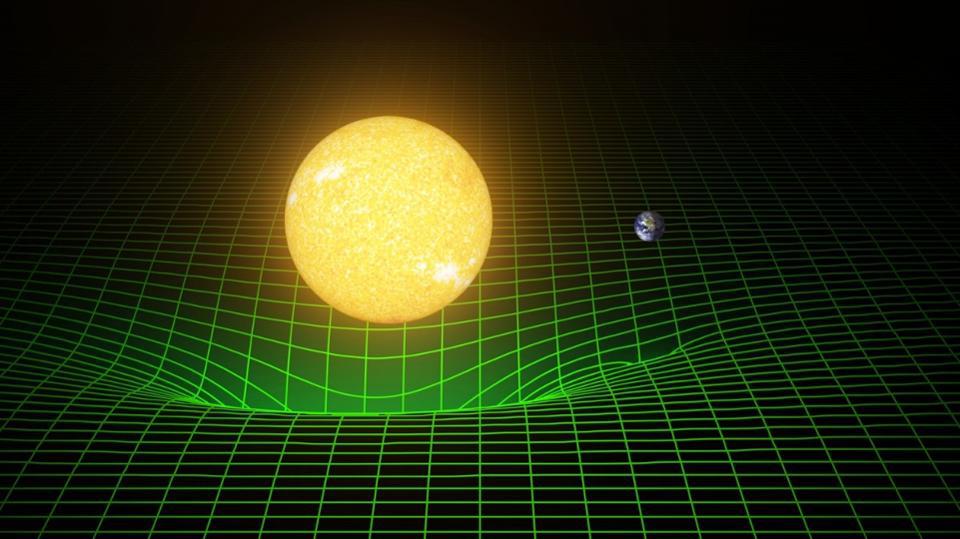- Is our experience of time different from how time actually works? Jim Al-Khalili, theoretical physicist and author of The Joy of Science, offers a lesson on the science of time — from Newton to Einstein to quantum thermodynamics.
- Going beyond the classical “common sense” view of time as absolute, Al-Khalili explains how Einstein changed everything when he taught us that time is relative and time and space are connected.
- “Time,” says Al-Khalili. “ticks by at different rates for different people depending on your frame of reference, and it’s malleable and it’s stretchable.”
JIM AL-KHALILI: We are very familiar with the idea that time flows from past to future. We remember the past, we make predictions about the future. We grow older, you stir cream in your coffee and it mixes up, it doesn't un-mix. What we refer to as the 'classical' understanding of the nature of time is still, to this day, our common sense view, which is that time is absolute.
There's a cosmic clock out there, ticking by the seconds, minutes, hours, years at the same rate for everyone. All this directionality to time comes from a very fundamental idea in classical physics called the 'second law of thermodynamics,' which states that a quantity called 'entropy,' which is a measure of the disorder of a system, always increases. Einstein gave us a different view of time. Einstein was forced- because of the equations of special relativity and the nature of the speed of light- forced to abandon the Newtonian picture of absolute time.
Einstein taught us that time and space are connected. So for me, a distance between two events that happen at different times, I can measure how far apart they are in space, and how far apart they are in time. But for someone else traveling past me at some fraction of the speed of light in a rocket, they would measure those two events as being a different distance apart, and the time between them being different. We won't agree on distances and time; space and time is relative. So suddenly, time becomes something that isn't absolute, that it ticks by at different rate for different people, depending on your frame of reference, and it's malleable and it's stretchable. And then Einstein follows that up with his 'general theory of relativity,' in which he takes it a step further and says, "What Newton taught us as being this invisible force of gravity pulling objects together is really about the shape of space-time."
Gravity has an effect on time. We will see clocks ticking by at different rates, depending on where they are in Earth's gravitational field. So suddenly, in Einstein's world, time is not something apart from space. It's something that's integral, it's part of the fabric of reality itself. If we zoom into the 'quantum realm' and you just look at the way the equations of quantum mechanics evolve in time, you realize you could run the tape forwards or backwards and you wouldn't know the difference.
Time in the quantum world is a parameter. And you say, "Right, if t equals five, what will the system look like at t equals 10 seconds?" You can also say, "What was t at zero, or at minus five?" T is just a number. We can put a positive, negative value to it, and run our equations forward and backwards in time so they're time symmetric- and that's not the way we experience time in daily life. The way we see a direction in time in the quantum world is when we look, when we make a measurement, 'cause that's when we interfere with the system. My hunch is that no quantum system is isolated.
All quantum systems are interacting with their surroundings, and it's that interaction with surroundings that gives a direction to time. It loses its 'quantumness,' and that's because it's becoming increasingly entangled with its surroundings. In the same way that a hot object placed in a freezer will lose its heat; it's equilibrating with its surroundings in terms of temperature. In the quantum world, the quantum system is equilibriating with its surroundings in terms of information exchange. It'll be hugely profound and exciting if we can see a direction to time emerging from the quantum realm- this new area that we're calling 'quantum thermodynamics.'







